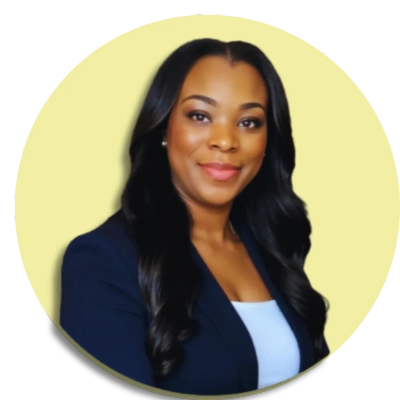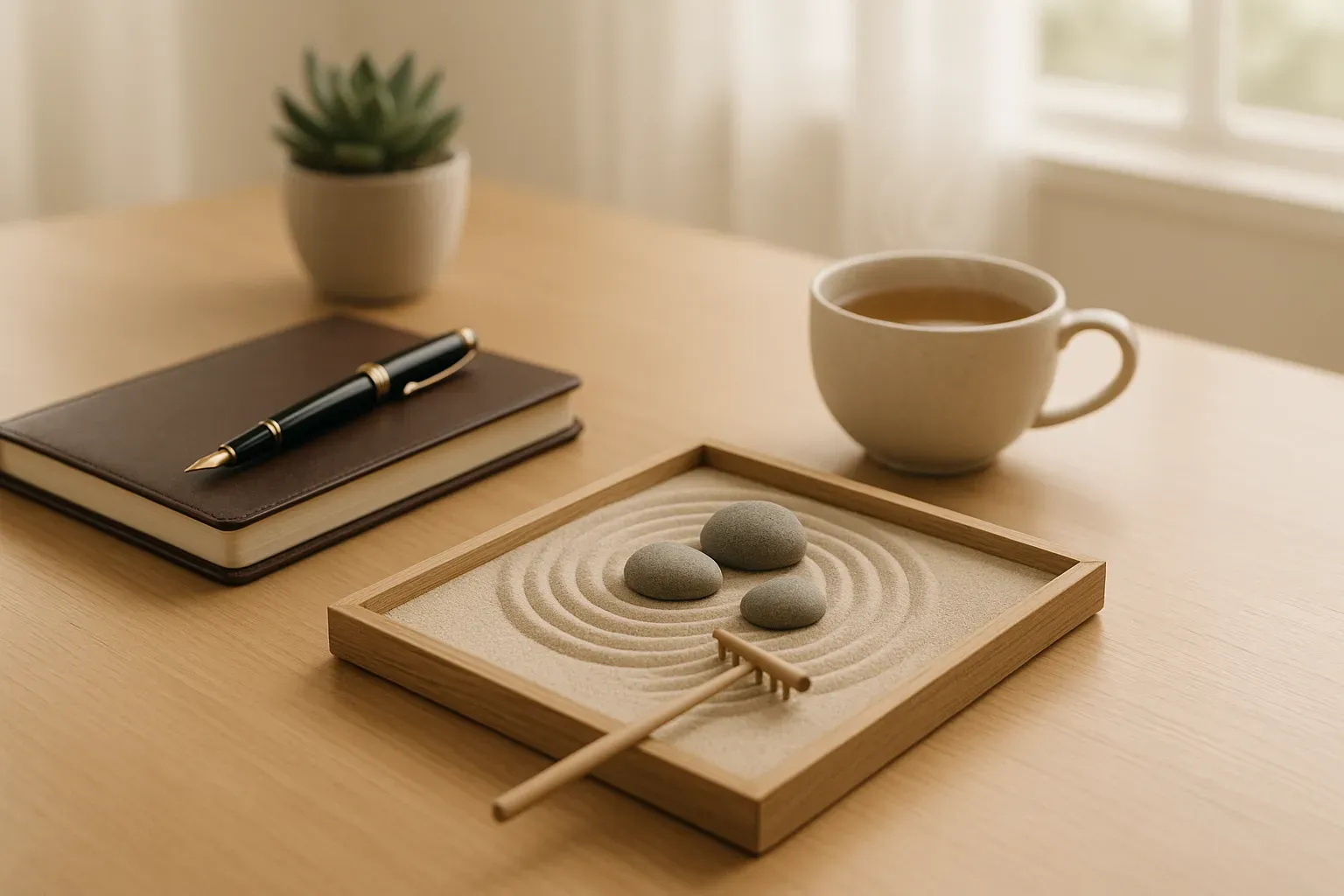Top CEOs reveal how strategic rest and psychological detachment directly enhance leadership performance and decision quality during critical moments. The relationship between self-care practices and sustainable leadership impact goes beyond preventing burnout to fundamentally improving judgment under pressure. Research shows that leaders who prioritize mental space and recovery consistently demonstrate stronger presence with their teams and make better decisions before reaching points of depletion.
- Your Nervous System Becomes Your Leadership Strategy
- Psychological Detachment Powers Sustained Leadership Energy
- Calm Mind Enables Transformative Leadership Presence
- Self-Care Protects Judgment Under Extreme Pressure
- Unwinding Transforms Stress Into Sustainable Impact
- Transition Rituals Improve Executive Decision Quality
- True Self-Care Happens Before Depletion Strikes
- Rest Powers Great Work Not Rewards It
- Leader Self-Care Fuels Presence in Critical Moments
- Maximum Capacity Diminishes Real Leadership Performance
- Stress Alters Decision-Making Beyond Simple Fatigue
- Clear Leadership Requires Mental Space to Recover
- Self-Care Multiplies Leadership Quality Across Teams
- Delegate Energy-Draining Tasks to Enhance Leadership
- Rest Is a Strategic Leadership Necessity
Your Nervous System Becomes Your Leadership Strategy
The most important lesson I’ve learned is this: your nervous system becomes your leadership strategy.
When I’m overwhelmed, it doesn’t just affect me, it affects the clarity of my decisions, the tone of my communication, and the emotional temperature of my entire team. I used to try to push through stress, thinking if I worked harder, I could outrun the chaos. But all I did was pass it down. Bottlenecking. Reactivity. Team whiplash.
You can’t lead clearly if you’re always on the edge. You start reacting instead of responding, and that ripple shows up in your entire organization.
That realization shifted how I work. I stopped treating rest as a luxury and started treating it like part of the job. I began protecting deep work blocks in my calendar, but I also carved out time to reset, to think, to breathe.
Another shift: I started being more open with my team about energy levels and stress. That kind of honesty creates psychological safety. It says, “You’re allowed to be human here.” And when your team knows they can be honest, they stop pretending and start managing their energy with intention.
The biggest insight? You can’t coach your team to clarity if you’re leading from a place of depletion.
Clarity requires calm. Innovation requires space. And resilience isn’t built through overwork; it’s built through rhythm.
So if you want to be a more effective leader, don’t just audit your schedule.
Audit your stress.
Ask yourself: What kind of energy am I bringing into the room?
Because the version of you that shows up under pressure… sets the tone for everyone else.

Psychological Detachment Powers Sustained Leadership Energy
The secret to power is recovery. After reading HBR’s classic article, “The Making of a Corporate Athlete,” years ago as part of my studies on peak performance, I fundamentally changed how I work, completely disconnecting on weekends and regularly throughout the year. This psychological detachment from work fosters perspective and restores energy. However, disconnecting from work requires managing the anxiety this creates, which I’ve found most leaders find challenging. It’s not easy to learn to disconnect, but if you want sustained energy throughout the year, it is a must.
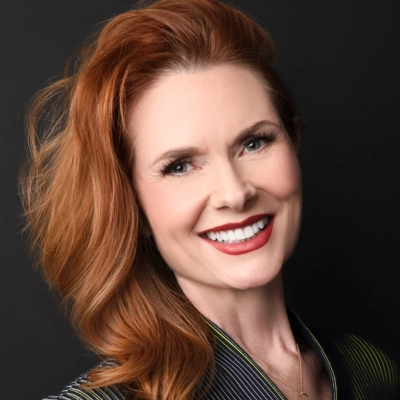
Calm Mind Enables Transformative Leadership Presence
As the Founder and CEO of The International Social Impact Institute(r) and an Adjunct Assistant Professor at NYU, I’ve led and taught nearly 10,000 professionals globally in applying ethical AI for social impact. One of the most important leadership lessons I’ve learned is that a clear, calm mind is not a luxury — it’s a leadership necessity.
In early 2024, I completed a 10-day silent meditation retreat that profoundly shifted how I approach stress and decision-making. Since then, I’ve incorporated daily mindfulness, monthly one-day silent retreats, and regular yoga and Pilates into my routine. I also prioritize tech-free riverside walks, gallery afternoons with my husband, and intentional digital boundaries — including a full detox this past January that led me to focus only on LinkedIn as my sole professional social network.
These practices help me lead with clarity, empathy, and creativity — key components of the 1+1+AI=10tm methodology I teach, which centers human insight in the AI-powered future. I’ve found that when I protect space for reflection and restoration, I make better decisions, collaborate more meaningfully, and show up more fully for those I serve.
Self-care isn’t separate from leadership — it’s what allows leadership to be truly transformative.

Self-Care Protects Judgment Under Extreme Pressure
The most important lesson I’ve learned is that unwinding and managing stress aren’t luxuries you earn after a tough week. They are essential tools for professional survival and effectiveness. As an attorney, I absorb the trauma of my clients while battling massive insurance corporations. For years, I believed that running on fumes was a badge of honor. I was wrong. A leader who is constantly burned out loses their most critical asset: perspective. You can’t effectively guide a client through the worst time of their life or lead your team in a high-stakes trial if your own judgment is clouded by exhaustion and stress. True leadership requires a steady hand, and that is simply impossible to maintain without intentional self-care.
My key insight is that consistent self-care has its greatest impact on a leader’s quality of judgment under pressure. When a judge issues an unfavorable ruling or the defense presents an unexpected piece of evidence, my team and my client are looking to me. If I haven’t taken the time to decompress, my reaction is likely to be emotional and short-sighted. But when I’m centered, I can absorb the blow, calmly reassess the strategy, and make the clear-headed decisions necessary to still win the fight. That clarity is the ultimate benefit of self-care. It protects my ability to think, strategize, and lead when it matters most.
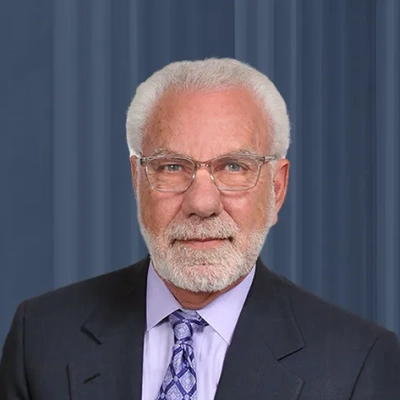
Unwinding Transforms Stress Into Sustainable Impact
The Hidden ROI of Rest: How Self-Care Elevates Leadership Performance
One insight I’ve learned as a CEO is that stress is the silent disruptor of leadership effectiveness. Without intentional unwinding, the mind and body accumulate tension, cloud judgment, and diminish your presence. Managing stress isn’t just about feeling better – it’s about performing better. Leaders who neglect this connection risk not only burnout but also a reduction in their ability to inspire, focus, and make critical decisions.
Self-care is the tool that transforms stress into sustainable energy. It’s the difference between reactive leadership and thoughtful, high-impact decision-making. Practices that allow you to reset and decompress – whether it’s yoga, dancing, a walk in the park, or even unconventional methods like sound baths, Access bars, or forest bathing – recharge your mental and emotional bandwidth. The key is consistency: small daily rituals compound into meaningful performance gains.
Effective leadership is less about being constantly “on” and more about showing up fully, with clarity, focus, and emotional resilience. When you honor your own need to unwind, your energy stabilizes, your thinking sharpens, and your interactions gain authenticity and presence. Stress managed well doesn’t just protect your health – it amplifies your influence.
Ultimately, self-care is not a luxury; it’s a strategic lever. CEOs who invest in their own wellbeing see the dividends in team engagement, decision quality, and long-term performance. Leadership energy is finite – how you nurture it determines the breadth and depth of your impact. Protect it, manage it, and your leadership will thrive, even under pressure.

Transition Rituals Improve Executive Decision Quality
The most important lesson I’ve learned working with hundreds of executives is that leaders who practice what I call “transition rituals” – brief, intentional activities between major decisions or meetings – make fundamentally better choices under pressure.
Research shows that decision-making performance initially improves with moderate stress but deteriorates as cortisol levels rise over time. The executives I coach who build in just 5-10 minutes of intentional decompression (deep breathing, a short walk, or mindfulness practice) between high-stakes situations consistently demonstrate clearer thinking and more strategic decision-making.
The key insight: self-care isn’t separate from leadership performance – it’s the foundation of it. When nearly half of CEOs report that isolation affects their performance, and 51% of executives experience high stress levels, the leaders who survive and thrive are those who treat stress management as a core leadership competency, not an optional luxury.
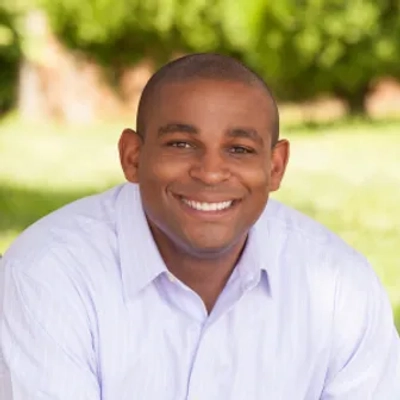
True Self-Care Happens Before Depletion Strikes
One of the most discussed topics in mental health and corporate stress reduction discussions is encapsulated in the growing advocacy for “self-care.”
However, as we look more deeply into the connection between stress management, leadership, and self-care, we find that many of the sentiments advocating for self-care are misaligned discussions of self-soothing techniques instead.
The primary difference between the two relates to how much energy you have left “in your tank” when you decide to care for yourself. Importantly, if you are “running on empty,” you are much more likely to be engaging in self-soothing activities or behaviors that seek to help you manage or soothe your dysregulation in the moment, but can still leave you feeling exhausted or overwhelmed overall.
Self-care, on the other hand, happens BEFORE you become depleted in the first place. True self-care inherently demands more from us, but it delivers returns in spades. It is in the spirit of true self-care that I advocate for CEOs to prioritize taking care of themselves; Leadership requires vision, motivation, empathy, and creativity – each of these qualities is further enhanced by your own self-care regimen.
Self-care is a proactive measure CEOs can employ to assist in maintaining their energy reserves, cultivating more emotional bandwidth, and genuinely prioritizing their well-being. There is a positive correlation between your conscious engagement in effective self-care and your level of emotional bandwidth, team empathy, and cognitive horsepower. The very act of true self-care is a proactive measure aimed at keeping your emotional, physical, and psychological reserves intact.
One of the most significant insights I have had in relation to taking care of ourselves is that although it is normal to have periods where we simply need to burn the candle at both ends and will inevitably benefit from engaging in self-soothing behaviors, in general, the aim is to rarely reach that level in the first place. Productivity reaches a critical mass and takes a sharp downward turn without taking opportunities to set limits, take up space, and rest and recharge on a regular basis. Engaging in self-care can be as simple as saying NO, prioritizing yourself, and not spending your energy, time, or effort on those people or situations that deplete your reserves.

Rest Powers Great Work Not Rewards It
As both a mental health professional and the founder of a mental health practice, I’ve learned that one of the most overlooked leadership skills is knowing when to pause. It’s easy to let our weekly to-do list (packed with calls, meetings, and deadlines) drive every decision and consume every minute. However, sustainable leadership requires more than task management. It requires prioritizing health and recognizing that leaders set the tone for their entire organization. Rest is not a luxury, it’s fuel. When leaders intentionally carve out time to unwind and create consistent rhythms that reduce stress, restore focus, and renew stamina, they return with sharper memory, clearer thinking, and the confidence needed to lead effectively. The reality is that a depleted leader won’t get as much accomplished, and they will struggle to inspire their team to thrive. My key insight is that rest isn’t a reward for finishing the work, it’s the resource that makes great work possible. When CEOs embrace this truth, they won’t just protect their own well-being, they will create healthier, more profitable companies.

Leader Self-Care Fuels Presence in Critical Moments
The most important lesson I’ve learned about the connection between unwinding, stress management, and leadership effectiveness as a CEO is that how leaders care for themselves directly shapes their ability to lead others effectively. Unwinding isn’t a luxury; it’s a vital part of sustaining the mental clarity, emotional balance, and energy needed to make sound decisions and inspire teams. When leaders neglect self-care, stress builds up, clouding judgment and diminishing resilience.
One key insight is that self-care fuels presence—the ability to be fully engaged, calm, and focused in moments that matter most. Leaders who prioritize stress management and intentional downtime are better equipped to navigate complexity without becoming reactive or overwhelmed. This presence creates trust and confidence in their teams, enabling stronger collaboration and agile responses to challenges.
In essence, self-care is not separate from leadership performance; it’s foundational. Leaders who model sustainable habits send a powerful message that well-being and success go hand in hand. Taking time to recharge isn’t a break from leadership—it’s a strategic act that multiplies impact.

Maximum Capacity Diminishes Real Leadership Performance
The experience taught me that operating at maximum capacity continuously fails to enhance leadership abilities because it creates impatience and reactivity and diminishes creative thinking. During the previous year, I managed three major client launches while getting minimal rest. My appearance of productivity on paper did not match my actual performance because I made bad decisions, failed to notice team alerts, and damaged my relationships with business partners.
I now view self-care activities as essential business expenditures. Running for one hour during the morning serves as my protection against making costly errors that could reach €10,000 at 4 pm. Your ability to lead with clarity depends on having a mind that operates outside of firefighting mode.

Stress Alters Decision-Making Beyond Simple Fatigue
I’ve learned that stress doesn’t just make you tired, it changes how your brain works. Research in Nature shows that when stress is constant, the brain falls back on habits and rigid responses instead of flexible, thoughtful choices. MIT studies also found that stress makes people more likely to take high-risk, high-reward decisions even when the trade-offs don’t add up.
As a CEO, chronic stress is a ticking time bomb because it can push you into either repeating the same old answers or chasing unsustainable bets.
What I’ve seen in my own work is that consistent self-care keeps me from sliding into those patterns. When I take time to unwind, whether through exercise, family time, or simply stepping away from the office, I return with more clarity and balance. I listen more effectively, weigh options more carefully, and adapt to challenges rather than just reacting to them.

Clear Leadership Requires Mental Space to Recover
One of the most important lessons I’ve learned as CEO of both CFO Business Solutions and Initiate PH is that clarity in leadership often depends on how well you manage stress. When you’re building multiple companies and helping other founders navigate financial decisions, it becomes easy to run on adrenaline and overlook your own limits. But I have found that high performance is not about being available at all times. It is about showing up with a clear mind and strong presence when it matters most. That clarity only happens when you learn how to step back, slow down, and recover.
Self-care is not separate from leadership. It is part of it. I’ve seen firsthand how making space for small pauses—whether it’s time with family, exercise, or quiet reflection—has helped me avoid emotional decision-making and lead with more discipline and foresight. For leaders, protecting your mental energy is a strategic decision. It influences how well you listen, how you judge risk, and how you inspire others under pressure. If your mind is always cluttered, your leadership will be too.

Self-Care Multiplies Leadership Quality Across Teams
The most important lesson I’ve learned is that leadership quality is directly tied to how well you manage your own state of mind. Early on, I thought pushing through stress was just part of being a CEO, but I quickly realized that when I’m running on fumes, every decision suffers. One key insight for me has been that self-care isn’t a luxury, it’s a multiplier. When I take time to unwind and reset, I show up calmer, clearer, and more patient. In turn, that makes me a better leader for the team. The business doesn’t just need my output, it needs my perspective, and that only comes when I’m looking after myself.
I also try to extend the same values to everyone at Carepatron. We operate remotely across the globe, which means the team works in different time zones and comes from different perspectives and cultures. We ensure we allow every single person in the team flexibility and ownership over their roles so they can step back whenever they need to for their better health and productivity.

Delegate Energy-Draining Tasks to Enhance Leadership
As a founder, it is imperative to define the tasks, habits and responsibilities that are energy-giving and energy-taking. In leadership, there is the ability to delegate the tasks and competencies to an emerging leader to help elevate them through opportunity. This frees up critical time to operate within your wheelhouse and make room for intentional stress management practices. In this process, I have learned one key insight: self-care and mental and emotional bandwidth are inextricably linked with the level of compassion, patience and embodied leadership that we bring to the table.

Rest Is a Strategic Leadership Necessity
The most important lesson I’ve learned as a CEO is that rest is a leadership strategy, not a luxury. Early in my journey, I believed constant hustle was the key to success, but I quickly realized that exhaustion limits creativity, decision-making, and empathy, all critical to leading effectively. Now, I prioritize intentional downtime and self-care, whether that means stepping away to reset, protecting my mornings for reflection, or carving out time for activities that recharge me. When I show up rested and grounded, I lead with more clarity, patience, and vision. Taking care of myself directly impacts my ability to take care of my team and my business.
